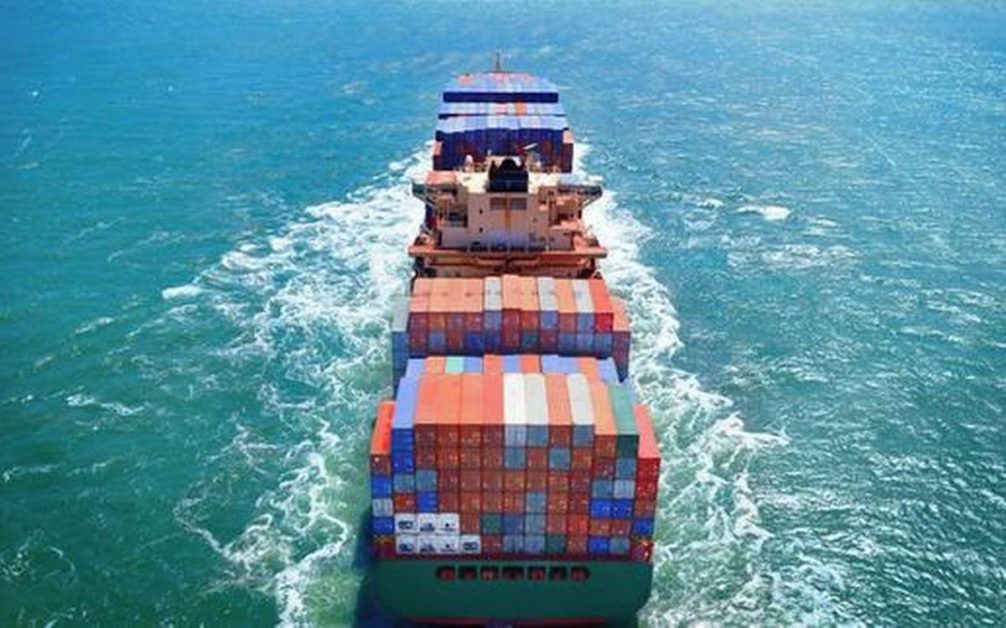India-US trade seems to be a big bet in the capacity rationalisation game, as carriers expect a trade boost from diversifying supply chain patterns in the Asian region.
Singapore-based liner Ocean Network Express (ONE) this week announced a new solo connection between West India and US east coast, further cementing its already expansive network profile out of India.
The West India North America (WIN) service will start next May, with a fleet of nine vessels to provide a weekly rotation of Port Qasim (Karachi), Hazira, Nhava Sheva, Mundra, Damietta, Algeciras, New York, Savannah, Jacksonville, Charleston, Norfolk, Damietta, Jeddah and Bin Qasim.
ONE is expected to offer co-loading space for other carriers, with HMM seen as a potential slot buyer, according to industry sources.
One distinct feature of this service is that it has three ports of call on the Indian leg, Hazira, Mundra and Nhava Sheva. Freight forwarder sources believe the Hazira call could help ONE pick up incremental hinterland volumes out of north-west India.
“Hazira container terminal is a gateway to the industrially vibrant belt of South Gujarat, North Maharashtra and Central India,” said Apramapar Singh, marketing general manager for ONE India.
“The main commodities include FMCG (fast-moving consumer goods), such as electronics, perishables, such as foodstuff, and retail goods, including textile and apparel,” he added.
Zach Connors, senior director and head of sales at ONE North America, said: “Enhanced access to additional growing economies along this new route by direct calls and transhipment will provide even more value to ONE’s partners in their pursuit of supplier/buyer diversification.”
With volumes trending down after Covid pandemic-induced demand swings ended in large-scale surplus capacity build-ups, which included complementary string additions by the Indamex Consortium, led by Hapag-Lloyd, CMA CGM and MSC, India-US trade is now caught in a ‘supply overhang’ scenario, heaping downward pressure on carrier rate levels.
According to industry sources, with capacity set to increase, rates could further move south. India-US contract rates have seen a further 10% decrease this month from end-October levels.
Additionally, joining frenzied network expansion by predominantly Asian carriers, CMA CGM is set to launch a direct service between India and China in early December, as cargo flow patterns shift as Asian supply chains diversify.
The Asia Subcontinent Express 2 (AS2) will have a weekly rotation of Shanghai, Ningbo, Shekou, Singapore, Colombo, Mundra, Nhava Sheva, Singapore and Shanghai.
With a growing import flow to India, container freight rates have been steady-to-slightly-increasing on India-bound Asian shipments in recent weeks, data from freight forwarder sources indicates.
And SeaLead, TS Lines, Sinotrans and SITC have also opened new intra-Asia connections to and from Indian ports.
Ravi Jakhar, chief strategy officer at Allcargo Group, also sees a buoyant outlook for intra-Asia trade, powered by strong economic growth in the region.
“India continues to be a bright spot with growth in consumption and overall economy,” Mr Jakhar said.
“This is leading to increased trade for India and hence, makes it logical for additional capacity to be deployed on the Far East-India trade, which can be re-deployed from other trade lanes where volumes have declined,” he added.
Meanwhile, global rating agencies are betting on robust growth rates for the Indian economy. S&P Global, in a report this week, upped its GDP growth forecast in the current fiscal year to 6.4%, from the 6% it estimated previously.
“Robust domestic momentum seems to have offset headwinds from high food inflation and weak exports” explained S&P.
Indian merchandise export trade in October saw a 6% increase, by value, year on year, according to provisional official data.







